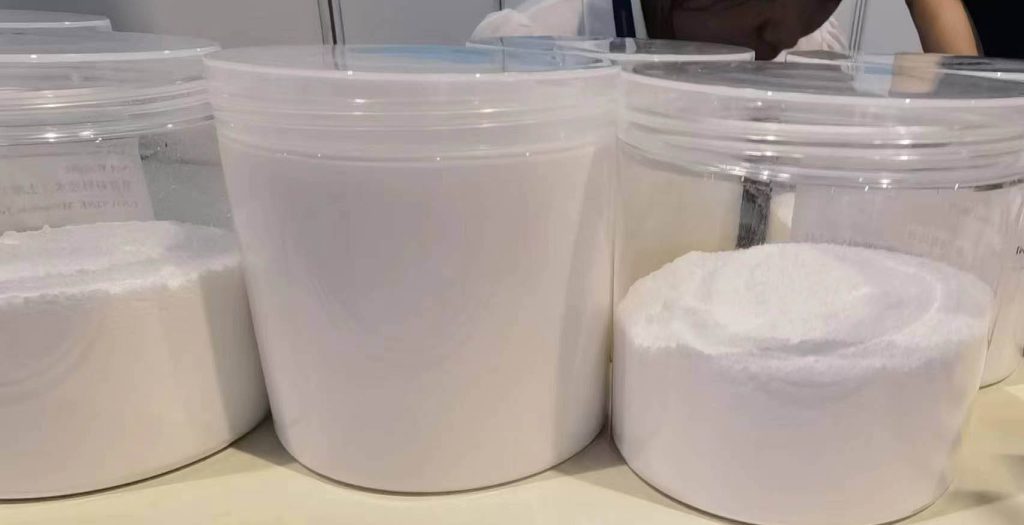Organophilic Lignite
What is Organophilic Lignite?
Organophilic Lignite refers to organic lignite coal that has been coated with a specific chemical to make it mix well with oil. This coating, often achieved using a quaternary amine compound, allows the lignite to effectively disperse in oil-based drilling fluids.
It finds extensive use in controlling filtration during activities like oil-based drilling. Its remarkable thermal stability and compatibility characteristics make it an ideal choice for managing filtrate loss. It is employed as a diluting agent, deflocculant, and stabilizer in various oil and water-based drilling fluids and is suitable for both oil-based and synthetic-based drilling systems.
When introduced to oil-based drilling fluids, it forms a protective layer on the wellbore’s surface. This thin yet robust filter cake serves to reduce fluid loss and prevents the intrusion of drilling mud into the geological formation. Essentially, it helps maintain the integrity of the drilling process by minimizing potential complications caused by fluid loss.
Organophilic Lignite stands out as a type of organic lignite coal that has undergone chemical modification to enhance its compatibility with organic solvents and drilling fluids.
Organophilic Lignite serves as an effective additive for filtration control agent in both oil-based and synthetic-based systems. Notably, it provides a viable alternative to materials like asphalt or gilsonite, which might not be desirable in certain applications due to their characteristics.
Characteristics | Organophilic Lignite
One of its standout features is its exceptionally low moisture content, consistently measuring below 10%. This inherent dryness enhances its stability and effectiveness, particularly in situations where moisture sensitivity could hinder performance. Equally notable is its minimal ash content, usually remaining below 15%.
A significant trait of organophilic lignite is its impressive solubility in both organic solvents and water-based fluids. This dual solubility makes it an ideal candidate for applications where compatibility with these solvents is essential.
Its versatility is most evident in its role within drilling fluids. Organo lignite serves as a versatile additive, playing key roles as a diluting agent, deflocculant, and stabilizer in both oil-based and water-based drilling fluids. This adaptability underscores its importance in maintaining optimal fluid properties and overall drilling efficiency.
In terms of physical characteristics, the particle size of organo lignite can vary, generally falling within the range of 20 to 100 microns.
This variability allows tailored incorporation into diverse formulations, optimizing performance for different applications. The material’s exceptional thermal stability is a significant advantage. This property equips it to withstand the demanding high-temperature conditions often encountered during drilling operations, ensuring its sustained performance without degradation.
Importantly, organophilic lignite is characterized by its non-toxic nature. This makes it a safe and reliable choice for various drilling operations, without introducing harmful elements or compounds that could compromise environmental or operational safety.
Functions and Benefits of Organophilic Lignite
Organic lignite showcases a remarkable capacity for emulsification and stabilization within drilling fluids. This quality ensures consistent fluid properties that optimize drilling performance and maintain fluid integrity throughout the process.
Additionally, organophilic lignite assumes the role of a reliable wellbore lubricant. By reducing friction and abrasion during drilling, it not only enhances efficiency but also prolongs equipment lifespan by minimizing wear and tear.
The unique ability of organic lignite to control fluid loss stands as a standout attribute. By forming a robust filter cake on the wellbore wall, it effectively mitigates fluid loss into formations, bolstering wellbore stability, protecting formation integrity, and sustaining drilling efficiency. Equally notable is its role in filtration control.
Organophilic lignite actively maintains the consistency of drilling fluids, ensuring efficient filtration and the removal of unwanted particles. This control leads to smoother drilling operations and prolonged equipment durability.
An additional benefit lies in its shale inhibition properties. This modified lignite plays a crucial role in preventing interactions between drilling fluid and shale formations, curbing swelling and disintegration. This inhibitory effect secures the stability of the wellbore and safeguards drilling operations from potential complications.
Field of Application and Purpose
Organophilic lignite is used to both oil-based and synthetic-based drilling fluids, where it harmoniously interacts with various additives. In oil-based drilling fluids, modified lignite emerges as an indispensable player, enhancing fluid stability and performance.
Its compatibility with other additives makes it an ideal complement to complex drilling fluid formulations, allowing for tailored solutions that cater to specific operational requirements.
Furthermore, in synthetic-based drilling fluids, organophilic lignite retains its significance by contributing to efficient fluid management. Its inherent properties enable it to seamlessly interact with synthetic fluid systems, supporting fluid loss control, wellbore stability, and overall drilling efficiency.
The extensive application of organophilic lignite stands as a testament to its adaptability across various drilling fluid formulations. Its compatibility with both oil-based and synthetic-based systems underscores its versatility, rendering it a key enabler in maintaining fluid properties, controlling fluid loss, and ensuring drilling success.
Drilling Mud Treating by Lignite
The mining and processing journey of organophilic lignite by Tripletchem is a meticulous one. Harvested from the earth, it undergoes a strategic process developed by Tripletchem, beginning with placement in piles to allow for oxidation in the open air.
This careful oxidation phase primes the lignite for subsequent stages. Following this, the material is meticulously dried, ground to optimal particle sizes, and carefully packaged, ensuring its readiness for integration into drilling fluids.
Within drilling operations, clay particles can pose challenges due to their tendency to swell upon contact with water-based fluids. Organophilic lignite steps in as a proactive measure, effectively curbing the swelling behavior of these clay particles.
By modifying the interaction between the fluid and the particles, it contributes to maintaining optimal fluid properties and preventing the detrimental consequences of particle swelling.
The introduction of organophilic lignite also plays a significant role in viscosity reduction. As drilling mud viscosity can impact operational efficiency, the lignite acts as a natural thinning agent. It aids in reducing the overall viscosity of the mud, enhancing fluid flow and making the drilling process smoother and more manageable.
Organophlic Lignite is Amine Treated Lignite Work in Oil Drilling
The process of Amine Treated Lignite involves the utilization of quaternary amine compounds, which catalyze the transformation of regular lignite into the organophilic modified lignite. This transformation enhances lignite’s compatibility with oil-based drilling fluids, allowing it to seamlessly disperse and function effectively within these systems.
The filtration-control role of organophilic lignite comes to the forefront as a direct consequence of its amine treatment. This additive proves to be a vital tool in managing the filtration properties of drilling fluids. By forming a resilient filter cake on the wellbore wall, it curbs fluid loss, prevents excessive invasion of drilling mud into the formation, and maintains wellbore stability.
The benefits of this Amine Treated Lignite extend beyond the surface. Its ability to regulate filtration supports wellbore integrity and prevents potential issues arising from fluid loss. Moreover, the compatibility of organophilic lignite with oil-based drilling fluids ensures harmonious interactions within these systems, ultimately leading to smoother operations and enhanced drilling efficiency.
Reducer of Swelling of Clay Particles
Organophilic lignite takes on the role of an inhibitor, effectively thwarting the undesirable effects of hydration and dispersion in clay particles. This inhibition prevents the expansion and destabilization of clays, ensuring that their inherent properties remain intact.
By mitigating these processes, powder organophilic lignite contributes to maintaining the stability of drilling fluids and preventing the complications that arise from unstable clays.
Its effectiveness as an intense peptizer of a clay solid phase makes powder organophilic lignite a powerful tool in enhancing drilling fluid behavior. It plays a pivotal role in dispersing clay particles and optimizing their interaction with the fluid.
This peptization effect leads to improved fluid properties, fluid-matrix compatibility, and ultimately, enhanced operational efficiency.
Viscosity reduction is another significant advantage brought forth by powder organophilic lignite. By acting as an effective viscosity reducer, it promotes smoother fluid flow and improved fluid circulation within the drilling system.
This reduction in viscosity translates to enhanced drilling efficiency, aiding in maintaining fluid integrity and facilitating drilling processes.
Packing Details
The packaging of organophilic lignite in Zhejiang Camp Shinning adopts a three-in-one approach.
This design not only streamlines handling but also ensures that each packaging unit remains consistent, with a precise net weight of 25 kilograms per bag. This standardized weight simplifies inventory management, transport logistics, and on-site usage, offering a practical solution for various industrial contexts.
However, beyond the functional aspects, proper storage guidelines are equally emphasized. Organophilic lignite thrives in a cool, dry, and well-ventilated environment.
This storage condition helps preserve its chemical properties, preventing undesired alterations due to temperature or humidity fluctuations. This attention to proper storage not only extends the substance’s shelf life but also guarantees its efficacy when incorporated into different processes.
In line with safety, a crucial aspect of organophilic lignite’s packaging revolves around user interaction. It’s advised to avoid direct contact with eyes, skin, and clothing. As an industrial chemical, adhering to safety protocols is of paramount importance to prevent any potential adverse effects that could arise from accidental exposure.
We sincerely look forward to your consultation with our products ORGANO LIG.


